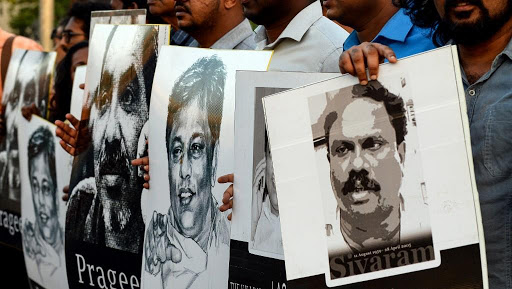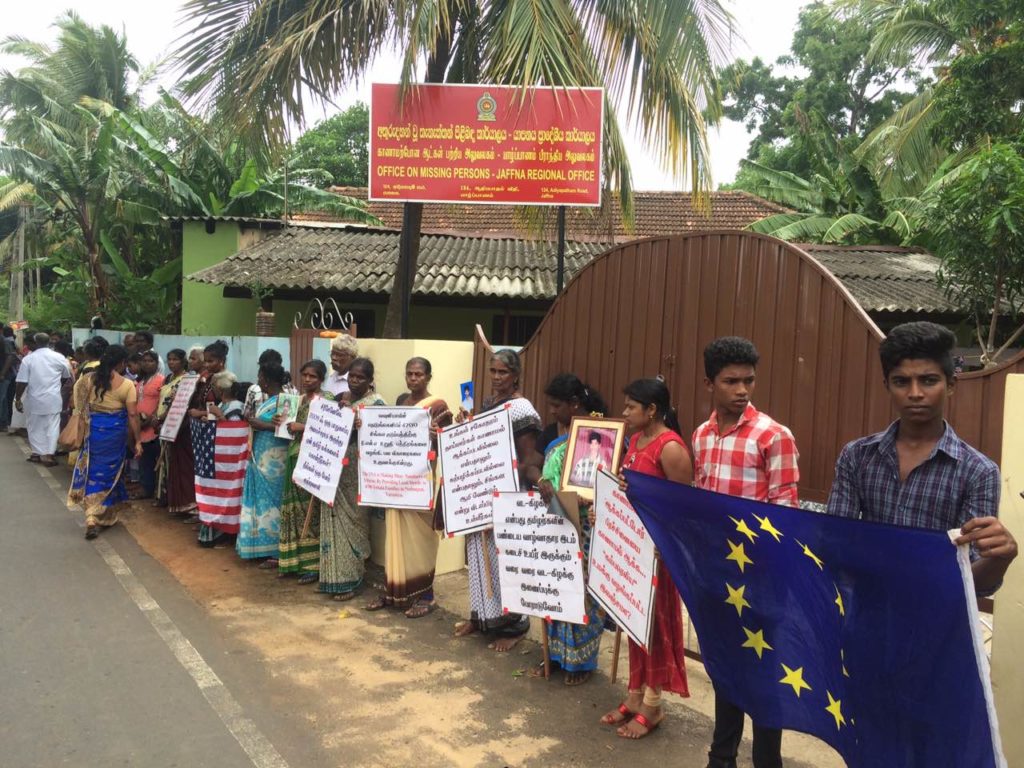Sri Lankan minister backtracks on probe into sexual harassment in media institutions
![]()
File photo: Keheliya Rambukwella
The Sri Lankan Media Minister and Cabinet Spokesman Keheliya Rambukwella backtracked his decision to carry out an investigation into sexual harrasment operating in media institutions.
In his statement yesterday, Rambukwella insisted that he will "not launch an investigation based on social media reports of allegations of sexual harassment in media institutions" and that if there is an incident then a complaint must be made to the Police or the Media Ministry.
Despite saying last week that he had asked the Sri Lankan Government Information Department to investigate and ensure women journalists could work in a safe environment, Rambukwella stated that launching an investigation into any media institution without a formal complaint will be seen as "interfering in the media".
Rambukwella also claimed last week that he was not aware of the allegations made by female journalists on social media of sexual harassment at media institutions. Rambukwella also stated that “we will take the sternest action possible” and ensure women journalists are able to work in a safe environment.
The investigation was supposedly to be ordered into sexual harassment operating in media institutions after being prompted by multiple female journalists who used the "MeToo" hashtag to name perpetrators.
Earlier this month, journalist Sarah Kellapatha tweeted that a male colleague had threatened to rape her while working at a newspaper, with her tweets sparking and encouraging a catalogue of many others to come forward and go public with their own experiences.
See the thread here.
Kellapatha published a statement on her Twitter on Saturday thanking everyone for the support she received for sharing her story and urged people to ensure that they validate other victims who come out to tell their story of abuse and harrasment.
US journalist Jordana Narin, who had been an intern at the Daily News, said a senior colleague had sexually harassed her when she was just 22, until the chief editor forced him to resign.
“[He] was the best journalist Sri Lanka had ever seen. I couldn’t wait to learn from him […] instead, I [was] favoured by him, then yelled at by him, embarrassed by him, and groped repeatedly by him,” Narin said.
Former commissioner of the Human Rights Commission of Sri Lanka, Ambika Satkunanathan reiterated the importance of ensuring that allegations of sexual harrasment and abuse are listened to and taken seriously regardless of the NGO's or personnel implicated or being accused. Satkunanathan stressed that even if though the prospect of the Sri Lankan government deciding to weaponise the #MeToo movement for its own political advantage, this should not put off people from taking the victims of sexual harassment and abuse seriously.
1/There’s discussion in civil society & parts of legal community resulting in fractious exchanges, arguments, anger & reflection re #MeToo allegations. Some are asking if this is the correct political moment for these allegations to be made.
— Ambika Satkunanathan (@ambikasat) June 23, 2021
3/ In past I’ve been chastised for challenging persons considered progressive, but in reality, were only less-regressive than authoritarian alternative, b/c criticism was seen as derailing larger cause. ‘Larger cause’ hasn’t been able to move beyond defeating authoritarian forces
— Ambika Satkunanathan (@ambikasat) June 23, 2021
5/ Ppl wouldn’t have to ask if this is the political moment for #MeToo if we’d challenged deep seated structural & social inequalities, esp gender inequality. If our legal system hadn’t failed women. If we hadn’t failed to recognize gender equality forms core of larger cause.
— Ambika Satkunanathan (@ambikasat) June 23, 2021
7/ Civil society strategy has to be more than ‘let’s not rock the boat b/c govt will use allegations against us’. Victims have waited too long. We can’t continue to fail them. There will be no social stability as long as women live in fear/are insecure.
— Ambika Satkunanathan (@ambikasat) June 23, 2021
8/Human rights activists & lawyers who fight for justice on other issues- even if you don’t support the demand of survivors for justice, pls don’t undermine them in overt & covert ways. Gender justice is also justice & it entails standing with survivors & stand up for them.
— Ambika Satkunanathan (@ambikasat) June 23, 2021
Read more here.
















